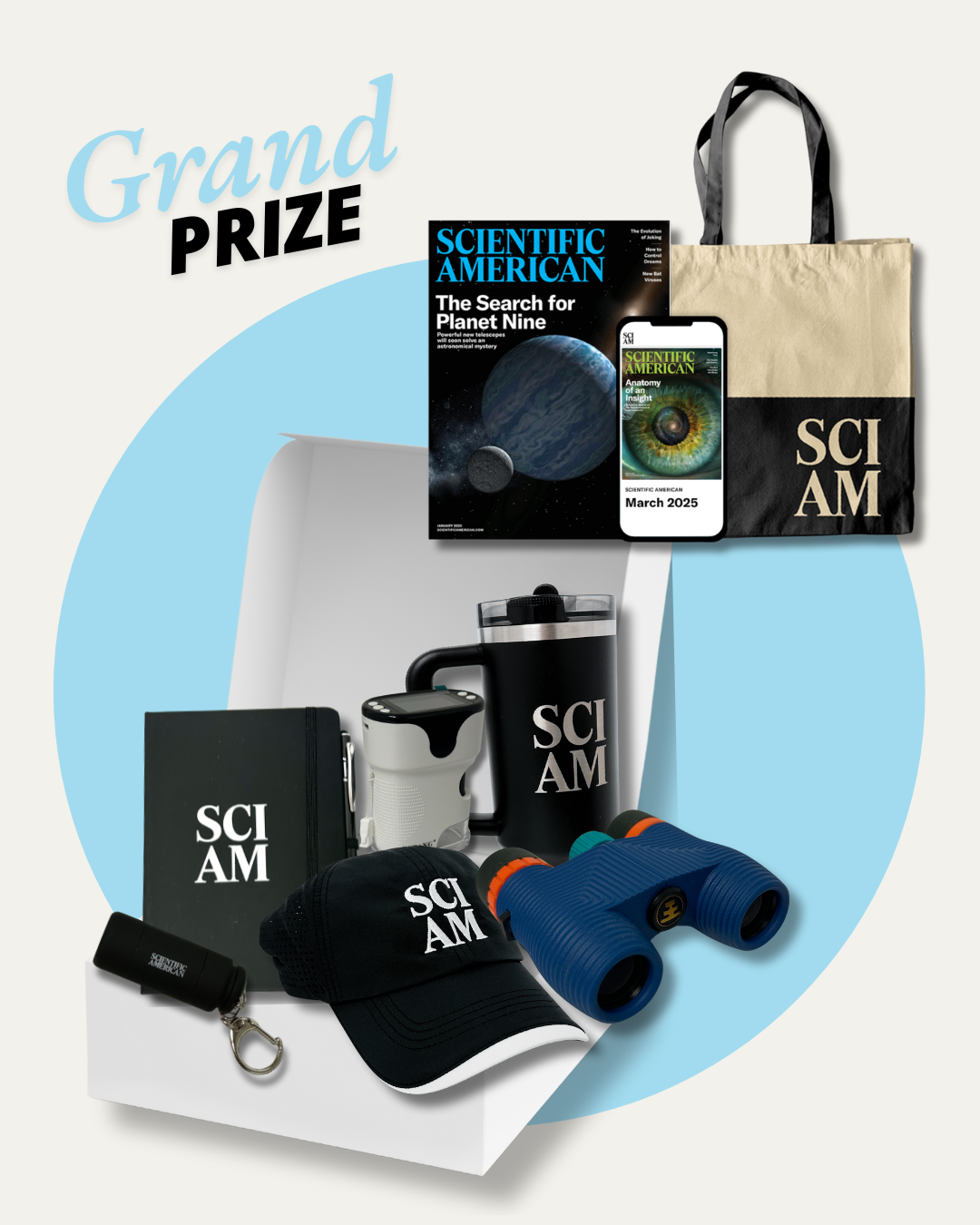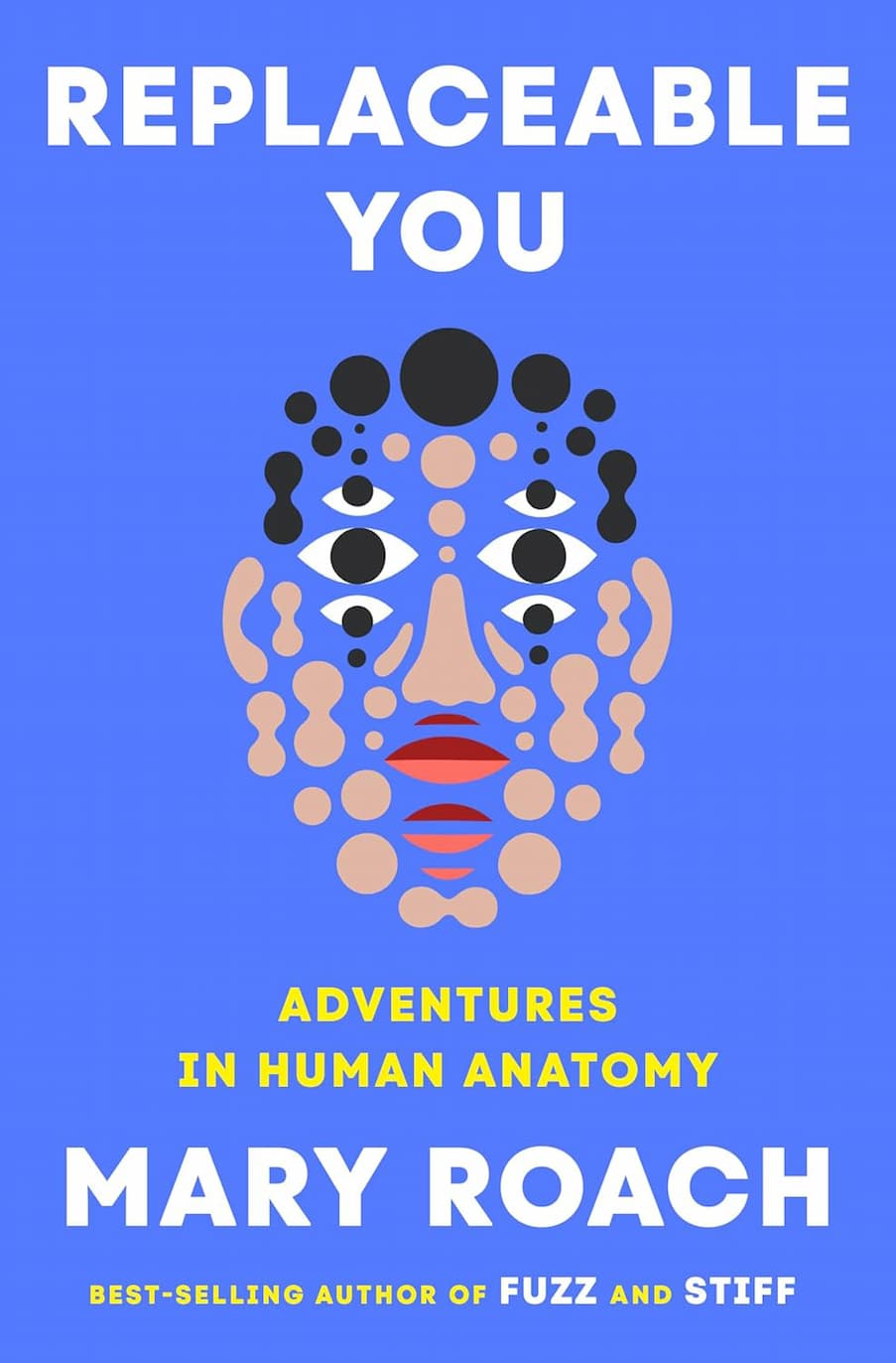A free, daily newsletter for anyone who loves science, inspiration and awe ͏ ͏ ͏ ͏ ͏ ͏ ͏ ͏ ͏ ͏ ͏ ͏ ͏ ͏ ͏ ͏ ͏ ͏ ͏ ͏ ͏ ͏ ͏ ͏ ͏ ͏ ͏ ͏ ͏ ͏ ͏ ͏ ͏ ͏ ͏ ͏ ͏ ͏ ͏ ͏ ͏ ͏ ͏ ͏ ͏ ͏ ͏ ͏ ͏ ͏ ͏ ͏ ͏ ͏ ͏ ͏ ͏ ͏ ͏ ͏ ͏ ͏ ͏ ͏ ͏ ͏ ͏ ͏ ͏ ͏ ͏ ͏ ͏ ͏ ͏ ͏ ͏ ͏ ͏ ͏ ͏ ͏ ͏ ͏ ͏ ͏ ͏ ͏ ͏ ͏ ͏ ͏ ͏ ͏ ͏ ͏ ͏ ͏ ͏ ͏ ͏ ͏ ͏ ͏ ͏ ͏ ͏ ͏ ͏ ͏ ͏ ͏ ͏ ͏ ͏ ͏ ͏ ͏ ͏ ͏ ͏ ͏ ͏ ͏ ͏ ͏ ͏ ͏ ͏ ͏ ͏ ͏ ͏ ͏ ͏ ͏ ͏ ͏ ͏ ͏ ͏ ͏ ͏ ͏ ͏ ͏ ͏ ͏ ͏ ͏
August 29, 2025—Science to get you through the new school year, how the human body changed for upright walking, and 100 years of quantum strangeness. —Andrea Gawrylewski, Chief Newsletter Editor | | Paralvinella hessleri. Wang et al./PLoS Biol (CC BY 4.0) | | Cavan Images/Getty Images | | Back to School School is starting up again, which can be an exciting—and challenging—transition for everyone involved. Luckily, Scientific American has lots of content to help you, your kids, and even teachers navigate the upcoming school year. Let us know what questions YOU have about learning, cell phones in the classroom, science curricula or anything school related. We'll have our experts answer them in some upcoming newsletters. Reading for pleasure: Every summer, kids are encouraged to read a select list of books for school, but they shouldn't stop once class begins. One study found that reading for pleasure in early childhood improved cognition, mental health and educational attainment in adolescence. Reading for fun could even counteract the negative effects that poverty might have on a child's brain, the researchers found. Phone bans: To counteract the distraction caused by devices, more than a dozen states have enacted phone restrictions in the U.S. This comes after a wave of research suggesting that phone bans in school can increase student performance, especially for low-achieving students. | | Lea Suzuki/San Francisco Chronicle via Getty Images | | AI in the classroom: Teaching kids and teens how to use artificial intelligence is more important now than ever, as more and more kids are using AI as companions. The American Psychological Association suggests talking to children as early as possible about how AI works, how to use it safely, how to spot false content it generates, and, especially, about the limits of AI companions compared with human relationships. Give agentic feedback: Studies show that giving kids more agency—the sense of control and freedom—to respond to feedback makes them feel more empowered. For example, instead of just correcting spelling errors, teachers can advise a student to review their own work for spelling errors. It signals to the student that the teacher trusts them to hone their own skills. Help kids understand how the brain works: Whether it's ADHD, autism or another learning disability, one of the best tactics is for parents, teachers and caregivers to help kids understand their learning challenges, says pediatric neuropsychologist and former special education teacher Jerome Schulz. This improves their concept of themselves, and helps them feel empowered and motivated to self-advocate, he says, which results in better academic performance and mental health. Keep curiosity alive: Science is about asking questions. Yet, over time, many parents notice that their child might lose interest in exploring the world around them. Scientists hypothesize this might be due to some linguistic cues. When talking to children, adults may say things like "Let's be scientists today!" (to promote curiosity) or "You're such a good scientist!" (to praise a child). But this language focuses on science as an identity, rather than a set of activities and actions that people do, which can be demotivating. Framing science as actions that we take, for example saying "Let's do science!" seems to protect children's interest in and motivation to engage with science over time. –Andrea Tamayo, newsletter writer | |  Celebrate 180 years Celebrate 180 years of Scientific American with our SciAm in the Wild photo contest. You could win a one-year Unlimited subscription, science gadgets and exclusive gear. Entering is easy! Snap a photo of any Scientific American cover in a great setting, share the image on your social media (or email it to us), and you're entered to win! Full contest instructions here. | | | | |
-
Test your science knowledge with this week's science quiz! Also, check out today's Spellements puzzle. Remember, if you spot any words missing from Spellements, send them in to: games@newsletters.com. This week Amir C. and Louise found susurrus, which is a rustling or murmuring sound. | | MOST POPULAR STORIES OF THE WEEK | | -
Scientific American Celebrates 180 Years with Stories of Scientific U-Turns | 8 min listen
-
RFK, Jr., Demanded a Vaccine Study Be Retracted—The Journal Said No | 4 min read
-
Can You Get a COVID Vaccine This Year? Here's What We Know | 10 min read
| | Every Friday in summer we're recommending a great, freshly-published science read. Tell us what you're reading, or if you try any of our recommendations! | | Replaceable You By Mary Roach. W. W. Norton, September 16 2025.
 In her latest book, author Mary Roach does what she does best: she selects a squirm-worthy subject (past examples have included cadavers, digestion and copulation) and transforms it into a lively tale of science and the human endeavor. In Replaceable You, Roach trains her talents on the world of organ regeneration and replacement. Along the way, she reveals the beauty of the human body by highlighting how, well, gross it is: humans are filled with mucus, our hair sometimes falls out, and our joints degrade in their sockets. Inspired by "the remarkable and sometimes surreal adaptability—the agreeableness—of the human body" to accept new organs, new tissues or fluids, Roach's unforgettable sense of adventure flies off every page. Whether holding a beating human heart in her hand or spending a night in an iron lung just to try it out, she is fearless in her firsthand reporting. She even chitchats about the details of surgical vulvoplasty over lunch with a surgeon, awkwardly laughing when the waiter offers their table more Parmesan cheese—the surgeon is ravenous and barely notices. Some organs may be replaceable, but the endlessly endearing and fascinating Mary Roach is not. —Brianne Kane In her latest book, author Mary Roach does what she does best: she selects a squirm-worthy subject (past examples have included cadavers, digestion and copulation) and transforms it into a lively tale of science and the human endeavor. In Replaceable You, Roach trains her talents on the world of organ regeneration and replacement. Along the way, she reveals the beauty of the human body by highlighting how, well, gross it is: humans are filled with mucus, our hair sometimes falls out, and our joints degrade in their sockets. Inspired by "the remarkable and sometimes surreal adaptability—the agreeableness—of the human body" to accept new organs, new tissues or fluids, Roach's unforgettable sense of adventure flies off every page. Whether holding a beating human heart in her hand or spending a night in an iron lung just to try it out, she is fearless in her firsthand reporting. She even chitchats about the details of surgical vulvoplasty over lunch with a surgeon, awkwardly laughing when the waiter offers their table more Parmesan cheese—the surgeon is ravenous and barely notices. Some organs may be replaceable, but the endlessly endearing and fascinating Mary Roach is not. —Brianne Kane | | Even though I've been out of school for a while (how can it be so long??), for me September still comes with a sentiment of sadness that summer is ending. As the amount of sunlight wanes in the coming months in this neck of the Northern Hemisphere, so do bodily rhythms, which are set by light, change. Moods are affected, sleep can be more difficult for some and even immune systems become less efficient. On the other hand, autumn is a sparkling season for all the senses, and it's worth experiencing. Whatever your relationship with fall, I hope you enjoy it this year! | | Thank you for reading Today in Science this week. Have a great, long weekend and send feedback to: newsletters@sciam.com. See you on Tuesday. —Andrea Gawrylewski, Chief Newsletter Editor
With contributions by Andrea Tamayo
| | | | |
Subscribe to this and all of our newsletters here. | | | | |

